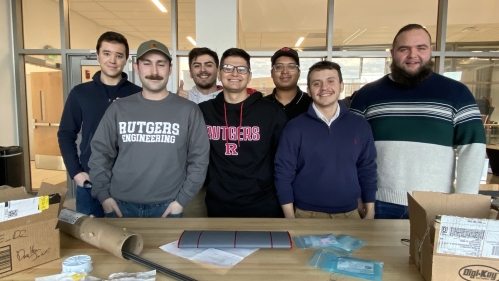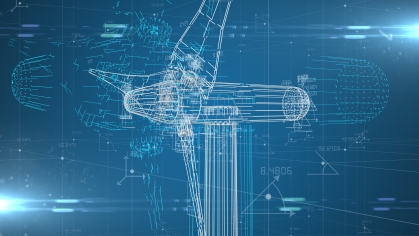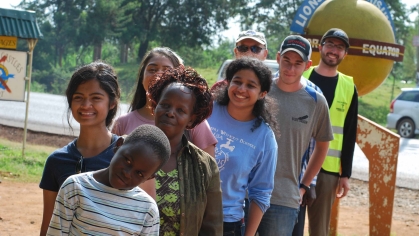SoE Students Eligible for NASA University Student Research Challenge Award

“Incredible” is how senior aerospace engineering students Daulton James and Bertrand Smith describe their team’s opportunity to receive a $12,000 NASA University Student Research Challenge (USRC) award for their “Sustainable Transport Research Aircraft for Test Operation,” or STRATO, project.
The seven-student STRATO team proposes to reduce emissions and improve aircraft sustainability by integrating miniature electric jets into aircraft wings. The award is contingent on the team raising $2,000 from a crowdsourcing campaign, which is in its final days .
Faculty team mentor mechanical and aerospace assistant professor Edward DeMauro reports that the team applied twice. “We got it on the second try. MAE associate professor Onur Bilgen had a team win the grant two years ago. Rutgers is the only university that has received this award twice.”
While the project was part of the students’ MAE senior design project, DeMauro notes that the enthusiastic team went above and beyond. “As a mentor I provide them with guidance towards experimental design, understanding the aerodynamics, working through problems as they arise, and helping them to interpret their results.” He will continue in this role as the project continues for another year and transitions onto his next senior design team.
A Push Towards More Efficient Aircraft
DeMauro, an aerodynamicist, was eager to guide students in a true group effort that began in June 2021. “First, I pitched to them that I wanted to work with synthetic jets, which would involve wind tunnel testing. Second, I directed them to papers and projects involving synthetic jets,” he recalls.
“The team arrived at what they felt was lacking in existing research – the direct application of a lab technology in an open-source way. Since synthetic jets were a major component of my doctoral work, the students could leverage firsthand knowledge about how they operate, along with their use in flow control applications.”
Senior Connor Magee, who “was a very vocal member to the team when it came to conceptualizing, designing, and shaping our project last summer when we first proposed it to NASA for USRC funding and again with our second, successful, project” was excited to explore an area of research typically limited to university professors and the aeronautical industry.
“In the long term,” he says, “our project is a step towards commercial adoption of active flow control as a way to make airliners cheaper, safer, and more efficient. We live in a time where efficiency is king, and our project nudges industry towards more efficient aircraft.”
A Highly Educational Project
For Daulton James, STRATO’s principal investigator, or PI, working on the project has been a key factor in his decision to pursue his master’s in MAE at Rutgers after graduating.
The Department of Defense SMART Scholar won’t have an active role in the project as a graduate student, but he will be available to offer advice on a project that he predicts will lead to cleaner skies.
“Having the ability to determine the scope of our project and needing to develop the idea from conception has been an excellent learning experience,” James explains. “Having the ability to take the skills we’ve learned as undergraduates and lay the foundations of a multi-year project that NASA supports is incredible.”
Smith describes the NASA USRC as an “incredible” opportunity to combine research with entrepreneurship.
Reducing Emissions and Passenger Costs
According to Smith, aerospace has a bad reputation for producing greenhouse gas emissions. “It’s been exciting to apply what I’ve learned at Rutgers to developing a technology that can help researchers transition synthetic jets from the laboratory to the real world – a technology that can dramatically reduce emissions and make the industry more sustainable,” he says.
DeMauro is justifiably proud of his students. “I love the fact that it’s an undergraduate project,” he says. “The students had to have initiative, work towards a goal, and see it through. The big picture is that they have learned at an undergraduate level about conducting wind tunnel research, networking with NASA, and about the value of communication skills.”
Help the team meet its crowdsourcing goal by May 21: Visit https://one.rutgers.edu/campaigns/strato-fundraiser#/


